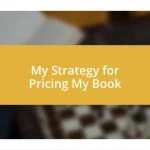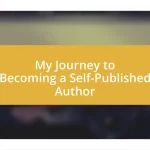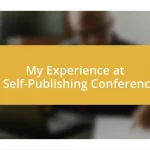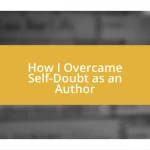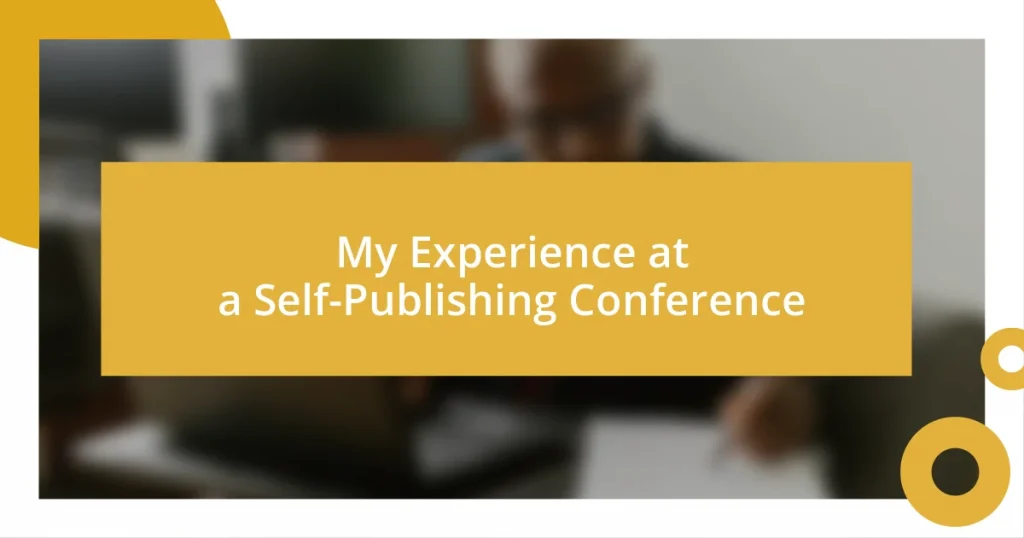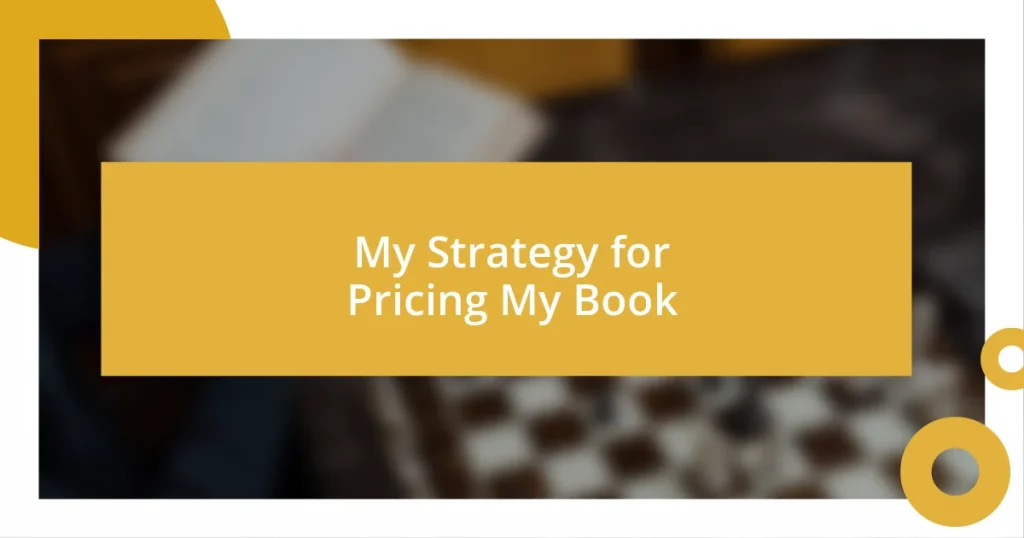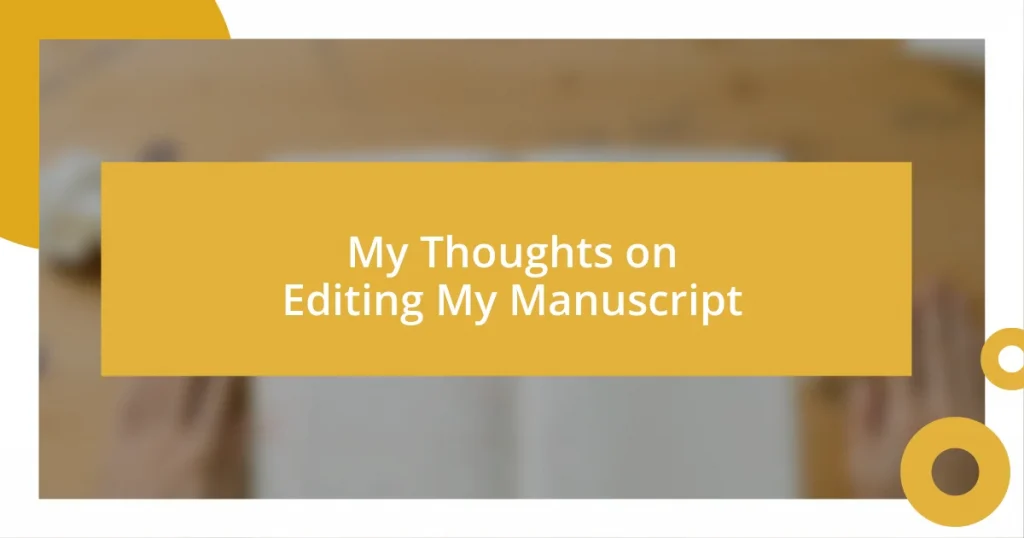Key takeaways:
- The conference offered diverse sessions and keynote speakers, emphasizing authenticity and personal connections in self-publishing.
- Networking led to genuine relationships and inspired collaboration, fostering a supportive community among authors.
- Key tips included the importance of professional editing, engaging with readers through social media, and embracing feedback to enhance one’s writing journey.
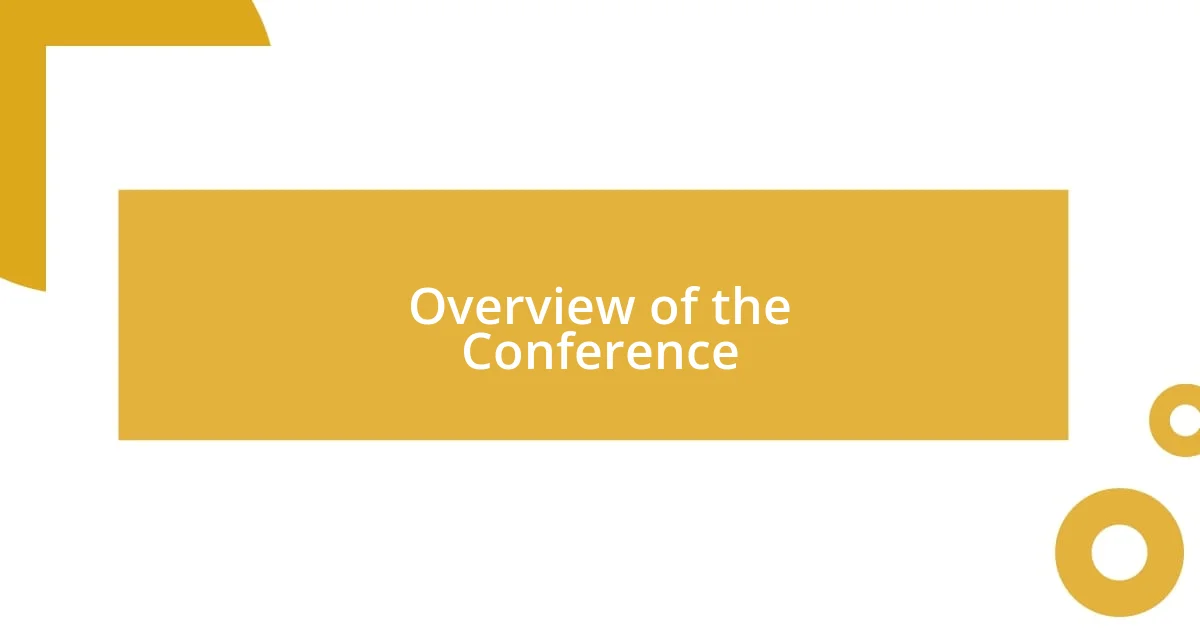
Overview of the Conference
The self-publishing conference I attended was a vibrant melting pot of ideas and creativity, drawing authors, industry experts, and aspiring writers from all walks of life. As I stepped into the venue, I felt an exhilarating buzz in the air—a mix of curiosity and ambition. Have you ever walked into a space where you could almost feel the energy of inspiration? That’s exactly how I felt.
Throughout the day, I found myself immersed in discussions about the latest trends in self-publishing, marketing strategies, and technologies shaping the industry. One of the sessions on digital marketing stood out to me particularly; the speaker passionately shared their journey, recounting how they turned their first book into a bestseller simply by leveraging social media. I couldn’t help but think, “What’s my story?” It was a moment that ignited my desire to transform my own approach.
In the midst of the workshops and networking events, I also formed connections that felt genuine and heartfelt. One evening, I struck up a conversation over coffee with a fellow author who shared her struggles with writer’s block. I could relate so much; it was as if we were echoes of each other’s experiences. These shared moments made the conference not just informative but also a deeply personal journey of growth.
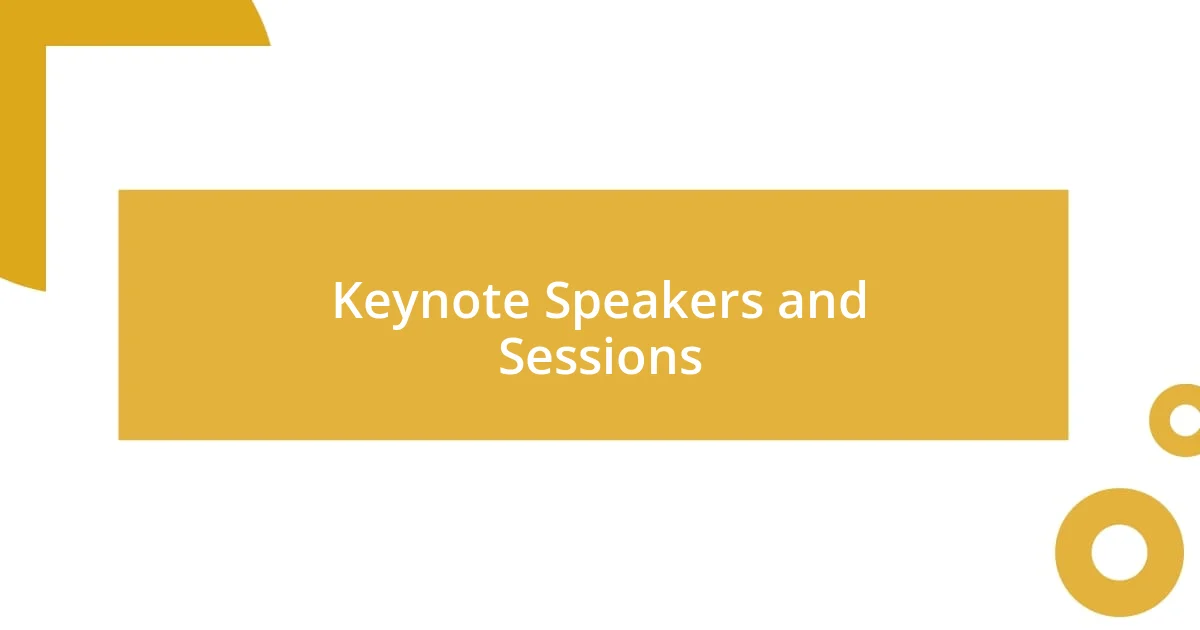
Keynote Speakers and Sessions
The keynote speakers at the conference were nothing short of inspiring. One speaker, an established author, shared the raw realities of their publishing journey, filled with both triumphs and setbacks. I remember sitting there, captivated by their vulnerability, and thinking, “This is the kind of honesty that resonates.” It reminded me that every author’s path is unique and often riddled with challenges that we can all relate to.
In my experience, the sessions offered a wonderful variety. From hands-on workshops focusing on editing to presentations on mastering personal branding, each session provided a wealth of knowledge. I found myself jotting down notes and questions, eager to absorb as much as I could. The best session for me was the one on building an author platform. The speaker emphasized authenticity and engagement, something that truly struck a chord with me—after all, isn’t connecting with readers the ultimate goal?
To sum up, the conference provided a rich tapestry of insights and experiences that left me feeling both enlightened and motivated. Each session was like a little treasure chest of knowledge waiting to be unearthed. I walked away not just with practical tips, but with a renewed passion and excitement to dive into my own writing endeavors.
| Keynote Speakers | Sessions |
|---|---|
| Inspiring personal journeys | Practical knowledge and skills |
| Authenticity and vulnerability | Variety of topics |
| Connection with audience | Engagement strategies |
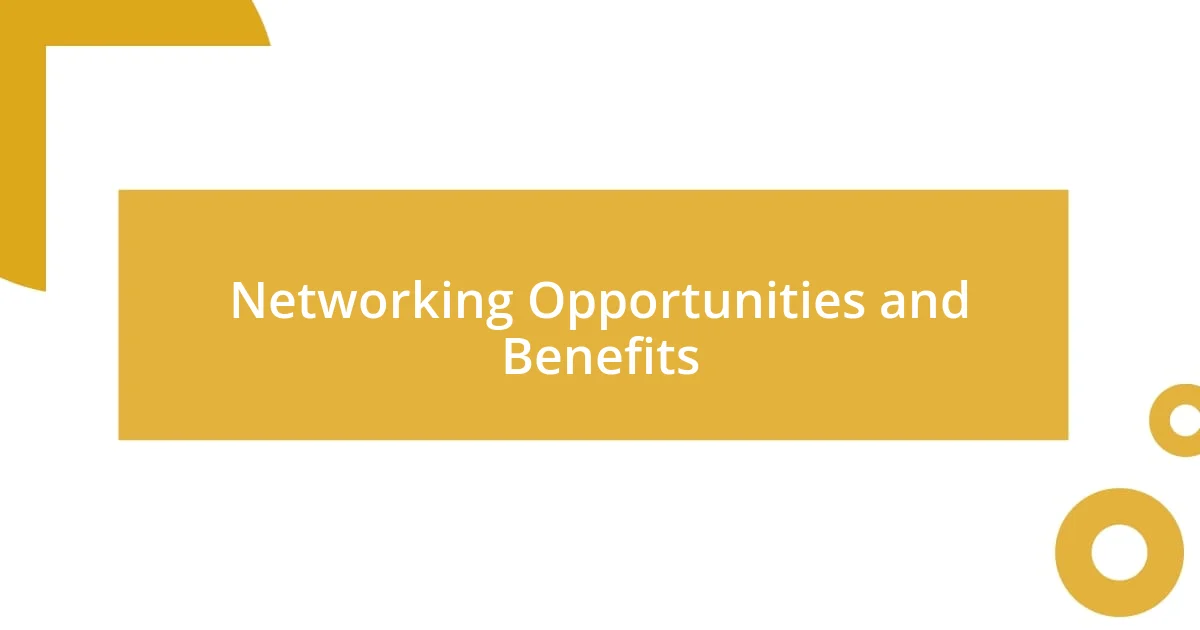
Networking Opportunities and Benefits
Networking was one of the most rewarding aspects of the conference for me. I vividly remember chatting with a self-published author who had recently landed a book deal after years of hard work. Her story of persistence and resilience resonated deeply within me. Those connections—not just exchanging business cards but sharing our journeys—brought a sense of camaraderie that I had hoped to find. It sparked the realization that this community is filled with individuals who truly understand the highs and lows of the writing life.
- Genuine connections foster collaboration, opening doors to future projects.
- Meeting like-minded individuals can inspire you to push your creative boundaries.
- Conversations often lead to invaluable feedback on your work.
- Networked authors can leverage each other’s platforms for greater visibility.
- Building these relationships may lead to mentorship opportunities.
Every moment spent networking felt alive with potential. I recall one lively discussion over lunch where a small group gathered to share insights about book marketing. One participant revealed a unique approach to email marketing that had tripled her book sales. Listening to her enthusiasm brought a spark of motivation, and I couldn’t help but think about how I could implement her ideas in my own strategy. Networking isn’t just about the contacts; it’s about learning from each other’s experiences and challenges, which adds a rich layer of depth to the self-publishing journey.
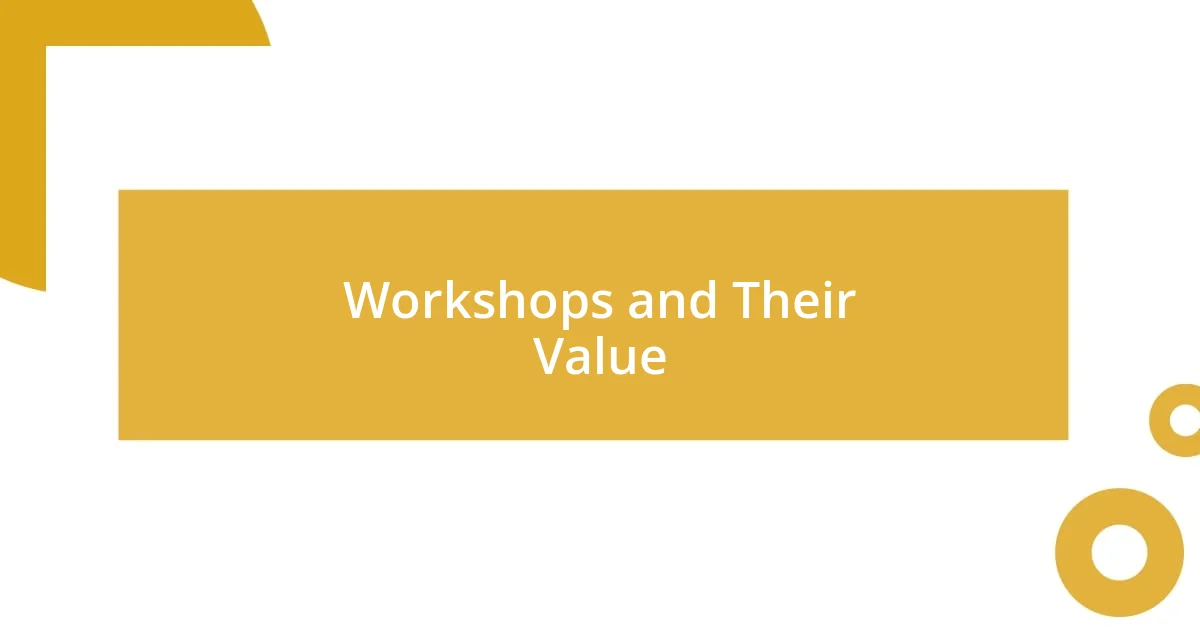
Workshops and Their Value
Workshops at the conference opened my eyes to invaluable skills I hadn’t even realized I needed. I remember sitting in a workshop on plot development, and as the instructor guided us through the intricacies of story arcs, it felt like a light bulb flicked on in my head. Have you ever had that moment when something just clicks? That’s what I experienced, and it transformed how I now approach my writing.
Attending a branding workshop, I was struck by the importance of finding your voice. It was refreshing to hear others share their struggles with self-promotion. As we engaged in exercises, I felt an overwhelming sense of relief wash over me; I wasn’t alone. It became clear that these workshops weren’t just about learning craft techniques but were spaces for fostering self-acceptance and bravery.
Another workshop focused on book marketing truly changed my outlook. The speaker illustrated the need to step outside our comfort zones, urging us to engage with our readers meaningfully. I left that session exhilarated yet slightly apprehensive. How could I start building that connection? By pushing myself to try new tactics, I realized, I could create a real impact in reaching my audience. This synergy of theory and practical application made attending workshops an essential part of my conference experience.
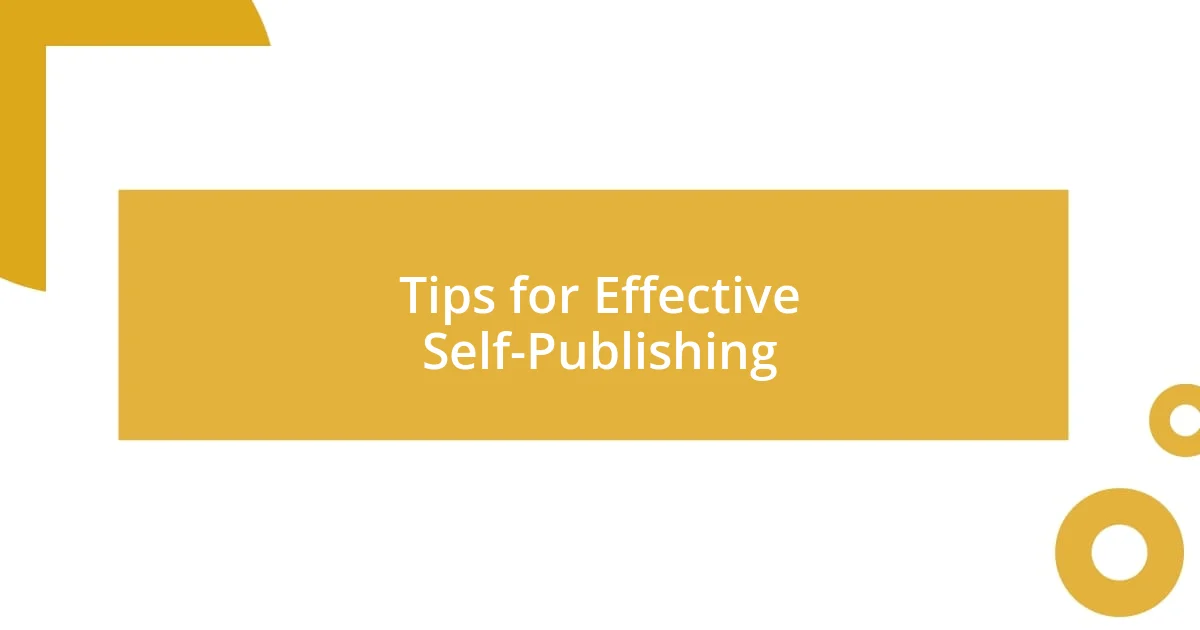
Tips for Effective Self-Publishing
One of the most crucial tips for effective self-publishing is to invest time in editing. I learned this the hard way; after publishing my first book, I received feedback that highlighted many typos and inconsistencies. I remember feeling embarrassed at first, but it taught me that a polished manuscript not only respects your readers but also elevates your credibility as an author. Have you ever considered how professional editing could transform your work? It’s worth every penny.
Marketing your book is another vital aspect that often gets overlooked. At the conference, I happened to sit next to an indie author who used social media to build an engaged community around her work. I was struck by her enthusiasm and the genuine interactions she had with her readers. Have you thought about how meaningful connections can amplify your book’s success? Engaging with your audience through platforms like Instagram or Twitter can create loyal fans who are excited to share your work.
Don’t shy away from feedback—embrace it! I vividly recall sharing my draft with a small group of writers at the conference. The mix of constructive criticism and encouragement was invaluable. Initially, I felt nervous about exposing my work, but it turned out to be a liberating experience. Have you considered how peer feedback can provide perspectives you might not see on your own? It can be a powerful tool for growth, guiding you towards creating a stronger final product.
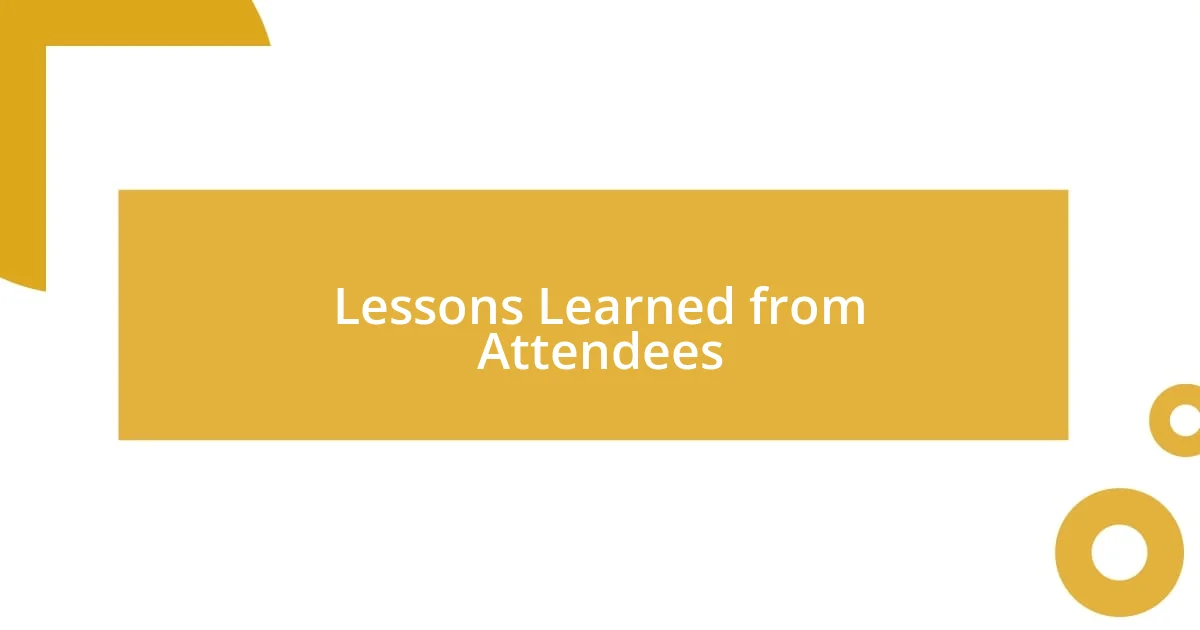
Lessons Learned from Attendees
It was fascinating listening to fellow attendees share their insights during the networking sessions. One author recounted her journey with self-publishing and the challenges she faced, especially when it came to marketing. Hearing her talk about her initial hesitations forced me to reflect on my own fears. Have you ever hesitated to take a leap because the path seemed too daunting? Her story made me realize that vulnerability can sometimes be the catalyst for growth.
A major takeaway from conversations with attendees was the importance of community. I talked with a group of writers who formed an informal support group post-conference. They emphasized how sharing experiences and resources helped each member thrive. It made me think: What if we all had such supportive networks? If you’re feeling isolated in your writing journey, seeking out a community could drastically change your experience.
Listening to a panel of successful self-published authors, I felt a sense of camaraderie as they shared their ups and downs. One author specifically mentioned overcoming rejection, stating that each “no” drove her closer to her next “yes.” I couldn’t help but wonder if we all needed to hear that encouragement more often. Isn’t it comforting to know that others have walked the same rocky path and emerged stronger? That insight alone reinforced the idea that persistence is as crucial as talent in this industry.
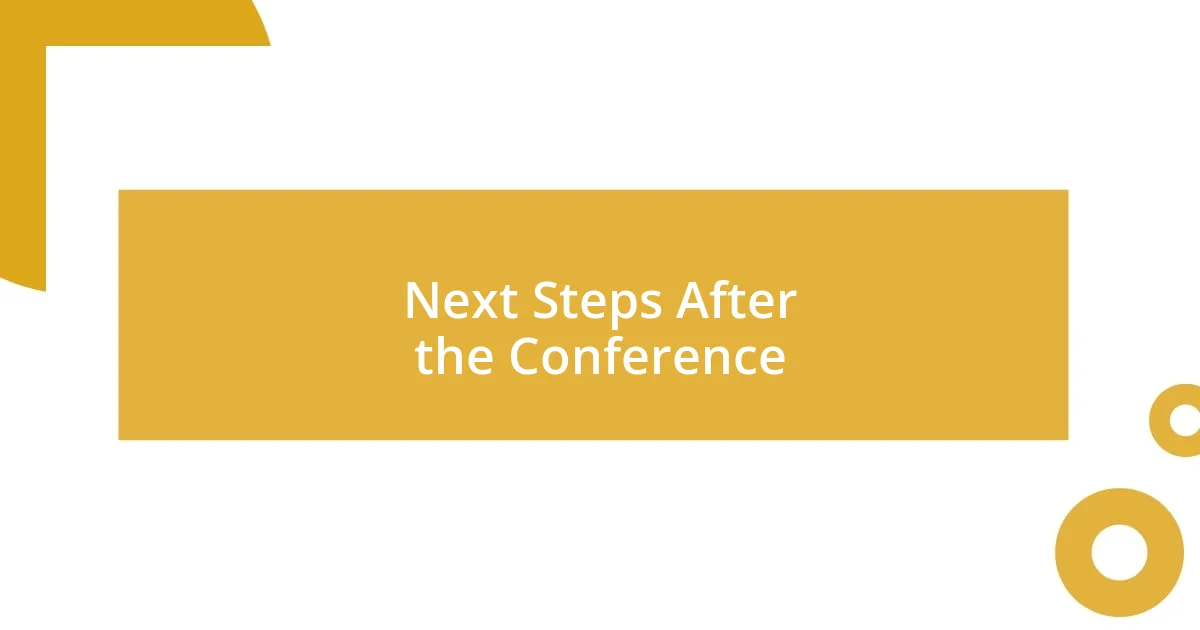
Next Steps After the Conference
The first thing I did after the conference was to sort through the wealth of resources I had collected. I was overwhelmed by the notes, business cards, and materials, but I quickly realized I needed to prioritize what resonated with me the most. Have you ever felt paralyzed by too many options? By focusing on just a few key contacts and actionable steps, I found clarity in my next moves.
Connecting with fellow attendees was a game changer for me. I decided to schedule follow-up conversations with writers I’d met, and it transformed my outlook. It’s amazing how a shared coffee chat can reignite your passion and give you actionable ideas. Have you thought about the potential of collaboration? Perhaps it’s time to reach out to someone you clicked with—sharing experiences could lead to mutual benefits, even new projects.
Finally, I set concrete goals for the months following the conference. I remember vividly jotting down milestones for my manuscript and marketing strategy. Setting those intentions sparked a level of motivation I hadn’t expected. How often do we let inspiration fade away after an event? By sticking to my goals and regularly revisiting them, I not only stayed accountable but also monitored my progress, which fueled my drive.

